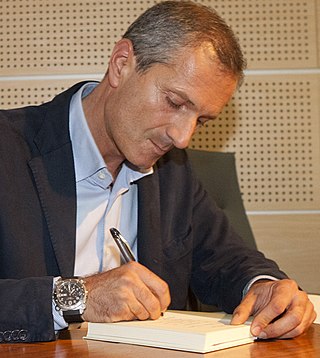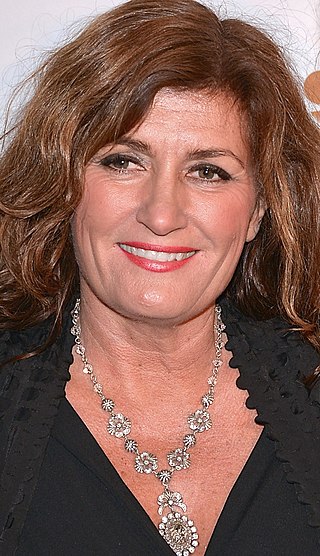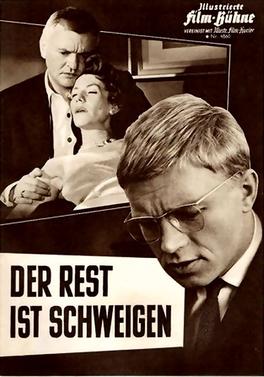
Jan Costin Wagner (born 13 October 1972 in Langen) is a German crime fiction writer. His novels are set in Finland and feature detective Kimmo Joentaa.

Jan Costin Wagner (born 13 October 1972 in Langen) is a German crime fiction writer. His novels are set in Finland and feature detective Kimmo Joentaa.
Wagner studied German Literature and History at university in Frankfurt, and later worked as a journalist. His first novel, "Nachtfahrt" (Night Trip) was published to much acclaim in 2002 and won the Marlowe Prize for Best Crime Novel. His wife is a native of Finland, and they spend time both there and in Germany. His 2007 novel The Silence (German : Das Schweigen) was adapted into the 2010 German film of the same name in English; the original name of the film in German is Das letzte Schweigen, i.e. The last Silence.
Wolf children or Little Germans were German and Prussian Lithuanian street children that existed in East Prussia at the end of World War II. Wolf children were mostly orphans left behind in the Evacuation of East Prussia and Red Army invasion in early 1945, with many living homeless in the forests of East Prussia or adopted by Lithuanian families.

Håkan Nesser is a Swedish author and teacher who mainly writes crime fiction. He has won Best Swedish Crime Novel Award three times, and his novel Carambole won the prestigious Glass Key award in 2000. His books have been translated from Swedish into more than twenty languages.

Anna Seghers, is the pseudonym of German writer Anna Reiling, who was notable for exploring and depicting the moral experience of the Second World War. Born into a Jewish family and married to a Hungarian Communist, Seghers escaped Nazi-controlled territory through wartime France. She was granted a visa and gained ship's passage to Mexico, where she lived in Mexico City (1941–47).

Arnaldur Indriðason is an Icelandic writer of crime fiction; his most popular series features the protagonist Detective Erlendur.

Gianrico Carofiglio is an Italian novelist and former anti-Mafia judge in the city of Bari. His debut novel, Involuntary Witness, published in 2002 and translated into English in 2005 by Patrick Creagh, was published by the Bitter Lemon Press and has been adapted as the basis for a popular television series in Italy. The subsequent novels were translated by Howard Curtis and Antony Shugaar.
Silence is the lack of audible sound.
Frank Arnau was the pseudonym of a German crime fiction writer, born as Heinrich Schmitt.
Peter Lilienthal was a German film director, writer, actor and producer. He is most associated with being a liberal director of New German Cinema in the 1970s.

Galsan Tschinag, is a Mongolian writer of novels, poems, and essays in the German language, though he hails from a Tuvan background. He is also often described as a Shaman, and is also a teacher and an actor.
Max Picard was a Swiss writer and philosopher, important as one of the few thinkers writing from a deeply Platonic sensibility in the 20th century.

Mari Jungstedt is a Swedish journalist and crime fiction author.

Gerhard Roth was an Austrian writer.
The Rest Is Silence may refer to:

The Rest Is Silence is a 1959 West German crime film directed by Helmut Käutner. It was entered into the 9th Berlin International Film Festival.

In World War II, Nazi Germany established brothels in the concentration camps to increase productivity among inmates. Their use was restricted to the more privileged Aryan prisoners, primarily the Kapos, or "prisoner functionaries", and the criminal element. Jewish inmates were prohibited from using the brothels according to rules against racial mixing. In the end, the camp brothels did not produce any noticeable increase in the prisoners' productivity levels but, instead, created a market for coupons among the more privileged camp prisoners.
"The Silence of the Sirens" is a short story by Franz Kafka. It was not published until 1931, seven years after his death. Max Brod selected stories and published them in the collection Beim Bau der Chinesischen Mauer. The first English translation by Willa and Edwin Muir was published by Martin Secker in London in 1933. It appeared in The Great Wall of China. Stories and Reflections.

The Silence is a 2010 German thriller film directed by Baran bo Odar, after the German crime fiction novel The Silence by Jan Costin Wagner.
Although primarily known as a filmmaker, Werner Herzog has also written multiple books and other works.

Silence in the Forest is a 1929 German silent drama film directed by William Dieterle and starring Dieterle, Rina Marsa, and Petta Frederik. It was shot at the Babelsberg Studios in Berlin. The film's sets were designed by the art directors Otto Guelstorff and Gabriel Pellon. It was made by the German subsidiary of Universal Pictures and was the first of several film versions of the novel of the same title by Ludwig Ganghofer.
Silence in the Forest may refer to: